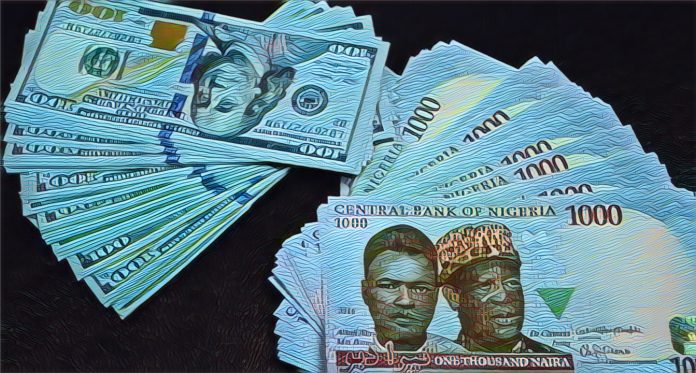JP Morgan, a renowned global financial services company, has made a prediction that the Nigerian Naira will trade at N850 against the US dollar by the end of December 2023. This projection is specifically for the Investors’ and Exporters’ Forex window.
The American bank pointed out that the recent efforts to restore a flexible foreign exchange (FX) regime in Nigeria might continue, especially when paired with a commitment to tighter monetary conditions. The interbank FX rate has recently risen to over 900 Naira per US dollar from 750 Naira, narrowing the gap with the parallel market rate, which is just above 1,000 Naira.
JP Morgan anticipates that the USD/NGN (US dollar to Nigerian Naira) exchange rate will gradually move lower towards 850 Naira by the year-end. This potential shift is attributed to a combination of factors, including tighter monetary policy, more attractive interest rates, and favorable FX levels. These measures are expected to discourage further dollarization and possibly attract foreign capital.
In addition to the policy actions, JP Morgan suggests that authorities in Nigeria may need to consider additional measures. These measures include requiring commercial banks to adhere to regulatory limits on FX net open positions, exploring the introduction of a cash reserve ratio on FX deposits, and issuing dollar-denominated assets domestically.
On the fiscal front, the financial services firm recommends that the Nigerian government mandate all taxes to be paid in the local currency, Naira. Some of these measures may already be part of the Federal Government’s upcoming revision of guidelines governing the forex market.
JP Morgan also advises oil exporting companies in Nigeria to consider selling their forex proceeds on the interbank market rather than directly to the Central Bank of Nigeria. The company believes that the willing buyer-willing seller model in the FX market is contributing to extreme volatility and should be reconsidered to improve price discovery.
This forecast from JP Morgan highlights the potential path of the Naira’s value in the coming months. It underscores the importance of policy measures, fiscal decisions, and market dynamics in shaping the currency’s trajectory, which ultimately impacts the Nigerian economy.
While the prediction of the Naira depreciating to N850 against the US dollar may raise concerns, it’s essential to note that exchange rates are influenced by a multitude of factors, both domestic and international. The government and financial institutions will need to work together to maintain stability in the foreign exchange market and ensure that the Naira remains resilient amid economic challenges.
As Nigeria navigates these currency dynamics, effective policies and prudent economic management will play a crucial role in safeguarding the nation’s financial stability and promoting sustainable growth.
Source: [Vanguard]



